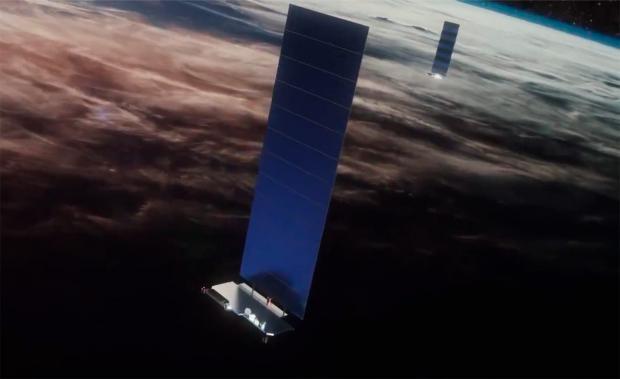
Breaking News
 China's Nightmarish New Bio Weapon Targets Race and Ethnicity
China's Nightmarish New Bio Weapon Targets Race and Ethnicity
 The Epstein Files Just EXPOSED the AI Mind Control Agenda (2026 Warning)
The Epstein Files Just EXPOSED the AI Mind Control Agenda (2026 Warning)
 Maxwell offers testimony if granted Trump clemency
Maxwell offers testimony if granted Trump clemency
 How RFK Jr's Guidelines Could Change Farming - Joel Salatin
How RFK Jr's Guidelines Could Change Farming - Joel Salatin
Top Tech News
 SpaceX Authorized to Increase High Speed Internet Download Speeds 5X Through 2026
SpaceX Authorized to Increase High Speed Internet Download Speeds 5X Through 2026
 Space AI is the Key to the Technological Singularity
Space AI is the Key to the Technological Singularity
 Velocitor X-1 eVTOL could be beating the traffic in just a year
Velocitor X-1 eVTOL could be beating the traffic in just a year
 Starlink smasher? China claims world's best high-powered microwave weapon
Starlink smasher? China claims world's best high-powered microwave weapon
 Wood scraps turn 'useless' desert sand into concrete
Wood scraps turn 'useless' desert sand into concrete
 Let's Do a Detailed Review of Zorin -- Is This Good for Ex-Windows Users?
Let's Do a Detailed Review of Zorin -- Is This Good for Ex-Windows Users?
 The World's First Sodium-Ion Battery EV Is A Winter Range Monster
The World's First Sodium-Ion Battery EV Is A Winter Range Monster
 China's CATL 5C Battery Breakthrough will Make Most Combustion Engine Vehicles OBSOLETE
China's CATL 5C Battery Breakthrough will Make Most Combustion Engine Vehicles OBSOLETE
 Study Shows Vaporizing E-Waste Makes it Easy to Recover Precious Metals at 13-Times Lower Costs
Study Shows Vaporizing E-Waste Makes it Easy to Recover Precious Metals at 13-Times Lower Costs
SpaceX launches 60 Starlink internet satellites, sticks rocket landing

A two-stage Falcon 9 rocket carrying a full load of 60 Starlink satellites lifted off at 8:46 a.m. EDT (1246 GMT) from Pad 39A at NASA's Kennedy Space Center in Florida. The booster's first stage came back to Earth about 9 minutes after launch, landing on one of SpaceX's drone ships in the Atlantic Ocean.
This was the third attempt to get this particular mission off the ground, following weather and data-review delays. The launch marks the first Starlink mission this month and SpaceX's 16th mission so far in 2020. The company's fleet of flight-proven boosters has been busy this summer, with the California-based rocket builder reaching a new milestone on its previous Starlink flight: launching and landing the same first-stage booster six times.
After a weekend of stormy weather, it was nothing but sunny skies and clear weather for a picture-perfect launch. Onlookers cheered as the rumble of the engines roared overhead.
"What a beautiful sight," SpaceX engineer and launch commentator Kate Tice said after the satellites floated away after a smooth deployment.
SpaceX had initially planned to conduct a launch doubleheader on Sunday (Aug. 30), with two different Falcon 9s launching from the company's Florida-based launch pads on the same day — a first for the private spaceflight company. However, those plans were thwarted by poor weather conditions produced by typical summertime thunderstorms in the area.

 Smart dust technology...
Smart dust technology...

